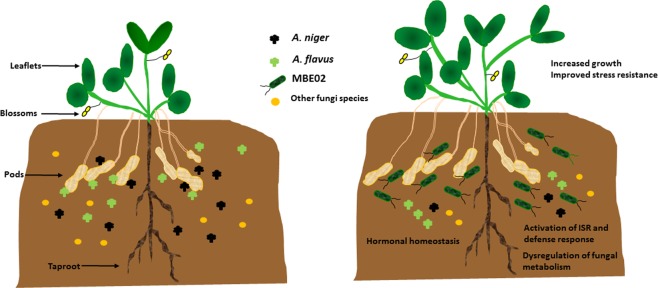Figure 10.
Schematic to depict the effect of MBE02 rhizobacteria on peanut under stressed conditions. (a) Aspergillus species and other fungal pathogens are present naturally in the soil where they remain in a direct contact with peanut, specially the roots and pods and cause significant reduction in its growth and yield. (b) Presence of MBE02 in the soil triggers host defense mechanisms that provides fitness advantage to peanut against fungal infection: (1) MBE02 alters hormonal signaling to stimulate the peanut growth and (2) trigger ISR to enhance plant immunity. (3) Additionally, being in the rhizophere, MBE02 may directly interact with pathogenic fungi trying to colonize the pods and roots, and restricts their growth by disrupting their metabolism and ability to cause pathogenicity, and in turn, confers resistance to peanut.

